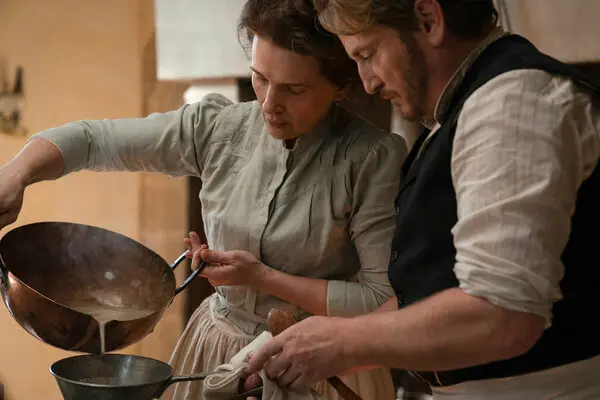
The Taste of Things, France’ Oscar submission in the Foreign Language category, directed by Tran Anh Hung stars Juliette Binoche as Eugénie. She is the personal cook and lover of French chef Dodin Bouffant, played by Benoît Magimel, Binoche’s former real-life partner, and father of her daughter Hana. It’s set in France’s Loire Valley region in 1889. She uses all the food treasures available to her on the land to make exquisite dishes; Dodin has guests to impress. Eugénie will serve an all-male party of winemakers, but will not be invited to join them. It opens with a long, one-camera dolly shot in a choreographed scene following her in the kitchen as she cooks an elaborate feast of traditional French food. It’s deeply, uniquely sensual, and it’s emotional. Their relationship is changing and we feel the pain of it even as these food artists weave their seductive edible webs; audiences will be rewarded with a great story and characters and an education on food. Binoche shared bon mots of food and love in a Critics’ Choice global gathering. What She Said’ Anne Brodie was there.
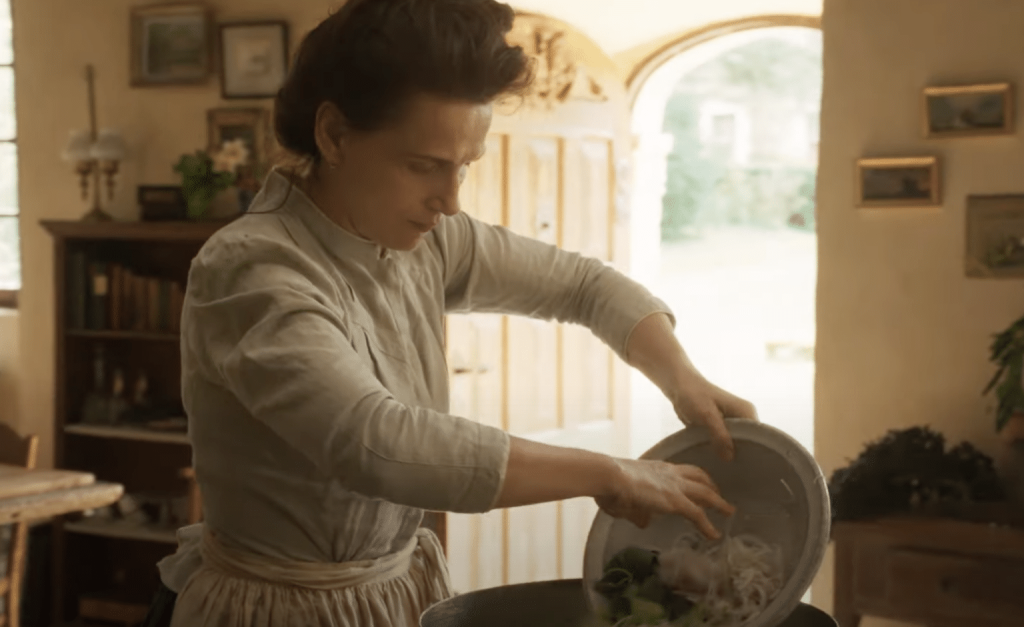
Juliette Binoche – Eugenie is a character of mystery. She is strong yet fragile because death is coming to her. Putting limits on Dodin is her way to freedom even as she agrees to marry him. She knows she will die soon. Benoit has a hard time saying she is my “cook”, he says twice “You are my wife”. No, say it as it is written, “cook”. Say to HER not for you. Cook.
Are you like Eugenie?
I was independent early on, taught by my mother, which feels natural to me, and I chose not to submit to males; needs or rules, you have to pick up your roles in a visionary way to help the world. How do you participate in the world? You have to be responsible. She won’t have dinner with the male guests, she wants to stay in the cooking world, she belongs there, that’s where her passion is. It doesn’t mean she’s not free. she chooses to stay there because that’s her freedom. I don’t want to be with you. I want to be here, my need is to be the best of what I am when I can.
What did making the film mean to you?
I really felt Eugénie’s sensibility, the vegetables, meat, fish, all the matter we have that’s given to us and how you make it into culinary art and transform it, give its condition to another place. You have written words and have to make them truthful. There’s a mystery about there being something you have to tap into something from another world, that’s what art is, something higher and deeper than real life.
What did you learn about cooking?
You have to clarify the butter, you melt it and white things come out, the “small milk”, you take it out when you cook in the butter put a very high temperature without burning, what burns is the white milk. I learned that French cooking is full of butter. I usually cook with olive oil but did appreciate butter. I wouldn’t recommend eating it every day.
What are your memories of your mother’s cooking?
Breastfeeding is my first memory. What amazed me in my mother’s cooking, it was simple, but always good, herbs or garlic or puree, always enhanced the state and it was always healthy. Food and health are very important. Raised on organic food by my mother. if your heart and spirit are in what you are doing, the ingredients being healthy, I go to a rural market on Sunday mornings in France, the same one, all about agriculture, people are in touch with the earth, my mother did it and I taught y children that. My mother taught me the basics of cooking and health and life, not depending on someone else facilities, so I taught my children. You have to learn the basics to survive in this world.
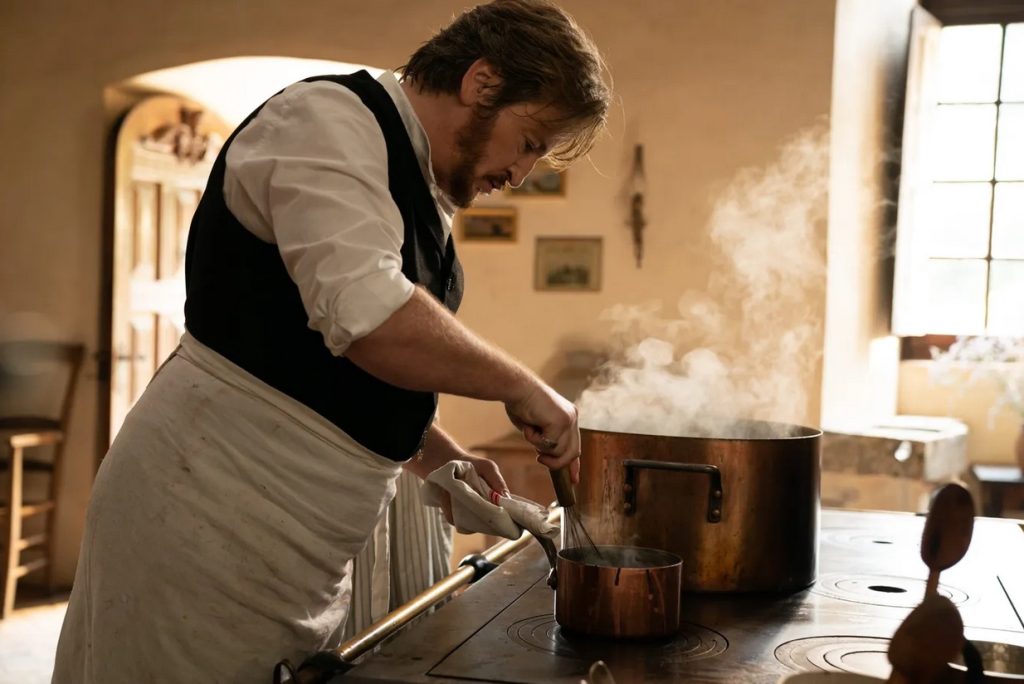
Do you use cooking to impress someone or achieve a goal?
It’s a lot of ego sometimes, for me, it’s “I’m an actress and I can cook as well!!”. For friends. Sometimes I just look on the Internet and books, it’s easy now. They show you how to do it and I have a resume of different kinds of recipes. It takes your time. I would spend one day with friends coming over. I used to do that part of you can understand but you’ve gotta do it with your heart. At the end of the day it was exhausting.
Was it difficult cooking, being in constant motion, and acting together, due to the precision of the shoot?
I like precision in films. I’ve worked with directors who are precise, and I like those challenges of reaching. I like the demand, it pushes inside you for something: and you have to lift it to a point, and that requires tension and you have to abandon yourself to it.
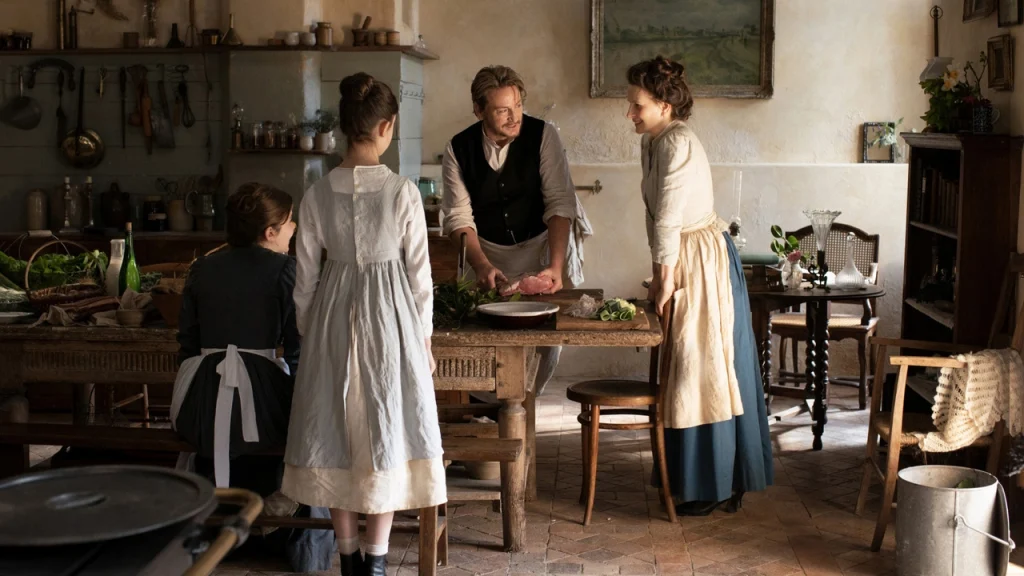
There is a lot of physical labour, movement, the weight of full pots, and the steam.
It’s very good for the skin!! I loved it, this huge kitchen! I just bought a farm with a barn that I want to be a huge kitchen with a chimney. The space you have to create to cook well needs to be your home. Can’t be too old or too perfect. You have to take your soul into a world where you’ll cook. It is tiring to cook, the big pans and you can’t hold it, too heavy. but you have to think Yes, I can! I needed to be this cook, be in front of the weight and dimension of what cooking is, a strong resistance.
What foods do you like?
Giving food is giving warmth. You have to feel grateful for what life and the planet give you. Use that energy in cooking you give to the world. I am eclectic when it comes to food. I love eating lots of different foods. I love consuming the soil of someone’s country or region, that’s how to know someone, another way not only literature, or our differences, in food there is a feeling of uniting. I want to eat your food in your home.
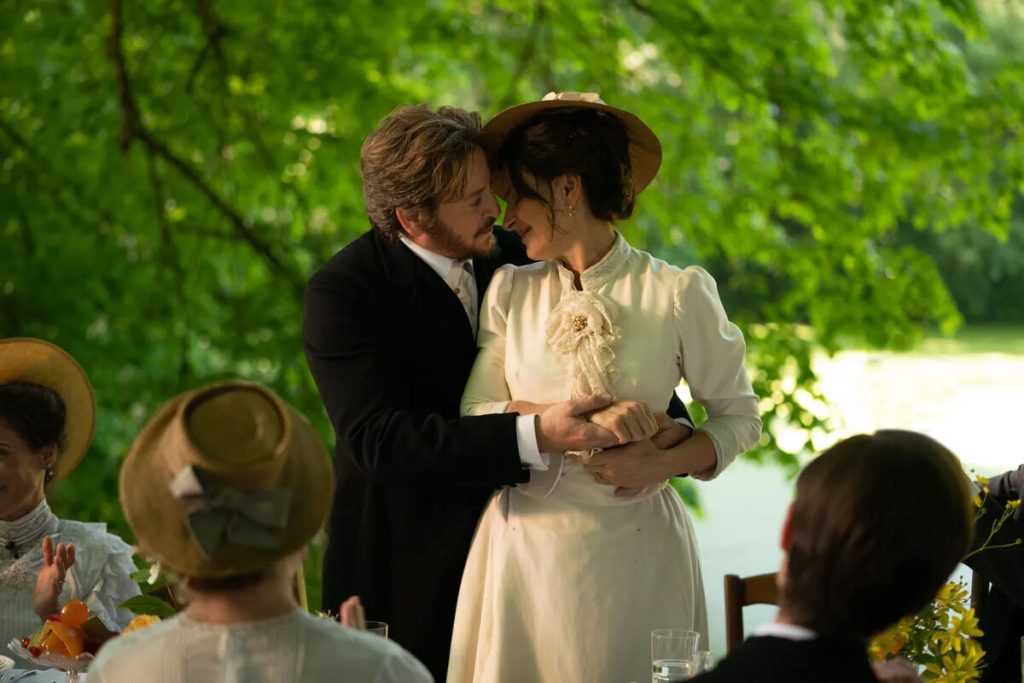
The most rewarding part of making The Taste of Things …
It was to work with Benoit. We have been lovers in the past, and we have a daughter, and this film reconciled with him, hidden reconciliation. We didn’t speak much all these years. But to speak through this and express love through the director’s writing was a beautiful way to express my love for Benoit. At the end of the day good bad or whatever, love is the thing. Benoit, I show him my love, express myself saying everything is fine, love is pouring forth. And from my daughter and my son.
The Taste of Things in theatres in Toronto and Vancouver on Feb. 16, in Ottawa Feb. 23 and throughout the winter in other cities.